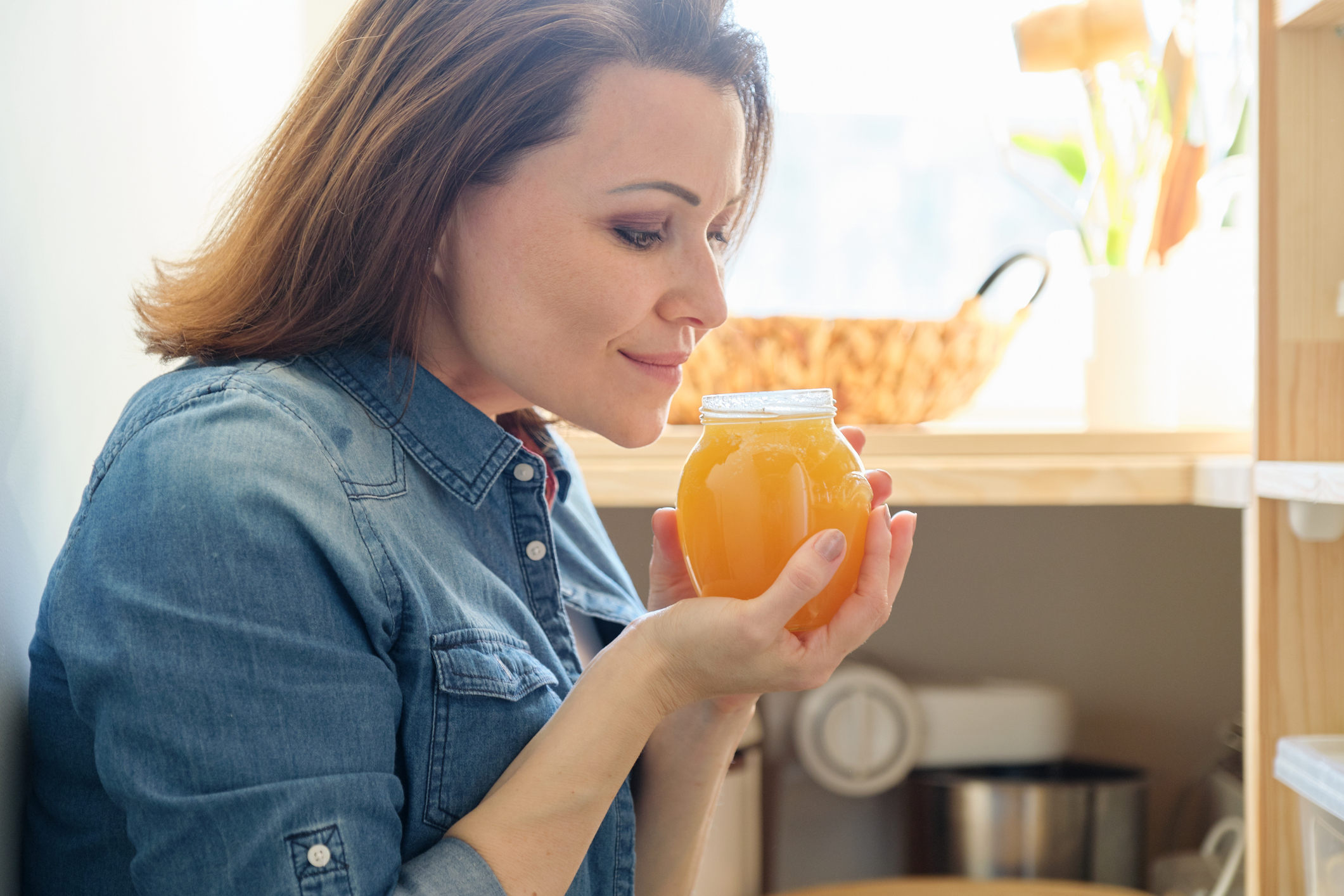Get Easy Health Digest™ in your inbox and don’t miss a thing when you subscribe today. Plus, get the free bonus report, Mother Nature’s Tips, Tricks and Remedies for Cholesterol, Blood Pressure & Blood Sugar as my way of saying welcome to the community!
How pure is your honey?

Honey is probably the sweetest health food out there. But not just any honey.
We’re not talking about the honey that comes in those little plastic bears. That’s a product that has been pasteurized and heated and has lost most of its natural vitamins, enzymes and phytonutrients. And, it’s often full of added sugar.
The health food we’re talking about is pure, raw honey.
Wait… let’s back up to the “pure” part. Unfortunately, as a natural, unprocessed product, raw honey may still arrive on your store shelves with ingredients you weren’t bargaining for, including pesticides, herbicides and bacteria.
But that’s not all. There’s a good chance that the raw honey you’re bringing home may contain antibiotics.
How in the world does that happen, you may be wondering? Pesticides, sure. But antibiotics?
Read on to learn more about raw honey and how to buy it safely so you can take advantage of its terrific health benefits.
What is raw honey and why is it good for you
Raw honey is just what it sounds like. It’s honey that hasn’t been changed or treated in any way since it was taken from the hive. It’s strained to remove things like beeswax and dead bees, then bottled and sold.
Because it hasn’t been pasteurized, processed or heated, raw honey retains all of its natural vitamins, enzymes and phytonutrients. It has about 30 types of polyphenols — amazing plant compounds that act as powerful antioxidants.
Raw honey also contains bee pollen, a source of vitamins, amino acids, essential fatty acids, micronutrients and antioxidants. Studies have found that bee pollen may help fight inflammation and improve liver function. It also has properties that may help fight against heart disease and stroke.
Finally, there is growing concern worldwide that commercial honey is adulterated with high fructose corn syrup. If you stick to raw honey, this will not be a worry.
So, what’s this about raw honey being contaminated?
How do pesticides and antibiotics get into your honey?
Beekeepers can’t control which flowers their bees travel to. If the bee sips from flowers that have been treated with pesticides, you get pesticides in your honey.
As for antibiotics, many beekeepers use them to protect their colonies from bacterial diseases. Of course, those antibiotics make their way into the honey produced by those “healthy” bees.
Not only does this add to the problem of antibiotic-resistant bacteria, but eating honey laced with antibiotics can produce an allergic reaction that shows up as anything from itchy skin to a life-threatening anaphylactic reaction.
How to buy “clean” raw honey
Buying raw honey from a local source gives you the opportunity to talk with the beekeepers and find out more about their practices.
But just “buying local” is never a guarantee that your honey is free of contaminants.
The only way to be sure of that is to buy organic raw honey.
For a honey to be labeled organic, all the plants and the entire foraging area need to be pesticide-free. And, certified organic honey must come from hives where no antibiotics or other chemicals were used.
Again, there’s no guarantee those bees haven’t strayed into other, more contaminated areas, but buying organic is the closest you’ll come.
There are also ways you can test the purity of your honey, and make sure no sugars or other products were added to it.
For example, pure honey will caramelize quickly when heated, rather than foaming up. And, if you smear a small amount of honey on your thumb, it won’t drip or spread. It will stick.
Sources:
All About Raw Honey: How Is It Different Than Regular Honey? — Healthline
Is your raw honey contaminated with pesticides and antibiotics? 3 things to check — health-holistic-living.com
Antibiotic, Pesticide and Microbial Contaminants of Honey: Human Health Hazards — The Scientific World Journal
5 QUICK TESTS TO CHECK HOW PURE YOUR HONEY IS — The Clean Food Movement













